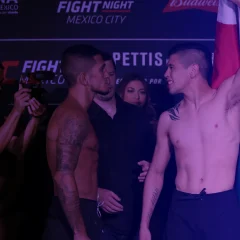When Bookmakers Avoid A Layoff
The normal depiction of a "layoff" is for an employee being removed by his or her employer from work due to a company's mismanagement issues or a bad financial situation. The concept of a "layoff" in sports betting is quite different as it's also not depicted in a positive way.
The normal depiction of a “layoff” is for an employee being removed by his or her employer from work due to a company’s mismanagement issues or a bad financial situation. The concept of a “layoff” in sports betting is quite different but it’s also not totally depicted in a positive way.
A sportsbook that places a wager with another bookmaker to help cut its liability on a certain game or to just balance out the action is called a “layoff.”
Let’s check out as to why sportsbooks try to avoid a layoff as much as possible in critical times, inasmuch as bookies cannot ap[pear to be weak and vulnerable in front of their users.
WHEN BOOKMAKERS NEED EACH OTHER TO SURVIVE
The rise of multiple sportsbooks around the world may get new bettors to assume that they come up with the smartest promotions and bonus offers, as well as the best odds to top the other and gain more profit. But there are time the bookies come around to help each other to cope with a barrage of bets.
Picture an overwhelming favorite like the Boston Celtics during the 1960s and 1970s, and they were sure bets to win the NBA championship every year back then. When almost all of the bettors place their money on a sportsbook, a certain fear goes into the bookie, knowing that an eventual Boston win will have them lose a great amount of money.
To avoid this, sportsbooks go to another sportsbook to place a big bet on the Celtics to try and even out the money just in case the public was right on the money with their pick.
DISTRACT BETTORS AWAY FROM POPULAR BETS
A star-studded team like the 2008 Celtics led by Paul Pierce, Kevin Garnett, Ray Allen and a rising point guard in Rajon Rondo were just too much for bettors to ignore from not winning a championship immediately in their first year.
For situations like these, sportsbooks often place unfavorable odds for these teams that are almost certain to be a lock of winning to protect their profits. Bettors then will be forced to place a huge amount of money down, which creates high risks for punters and scare them away from making their bet.
Bookies also put out spreads on games giving a team a certain edge or disadvantage on a game, which tends to even the betting field. And lastly, bookmakers do move the line in one direction or the other to try to lure the bettor to go in another direction, which can help ensure that there is a near splot on the action.
BETTORS SHOULD MANAGE SPORTSBOOK LAYOFF ACCOUNT
Even if a bettor is convinced that he has a popular bet for him to win, he should learn to create layoff rules and keep things in perspective. A punter should be smart enough to decide if laying off 100 US dollars to ensure he earns 10 US dollars is smarter than not laying off and hoping he loses.
Punters should always remember that they do not get juice, or vig, on moneyline bets. Instead, bettors should manage moneyline bets by capping how much players can wager. A bettor can use their layoff account as a betting account, and some punters can succeed in this set-up but this can also be a slippery slope.
For a sports betting bookie, he or she can get caught up making more wages than managing their business, which can lead to more problems than trying to figure out when and when not to use that layoff account.
BOOKIES AVOID LAYOFF BETS ON PUNTERS
Most sportsbooks avoid placing a layoff bet since a layoff bet is possible from the sportsbooks. The bookies still believe that they can get back their money every time the majority of the bettors are wrong with their popular bets.
Most established bookmakers have the bankroll to take a hit when the public gets it right on a popular bet winning it all. But it’s still a flip of the coin scenario, since the majority is not always right in terms of sticking to popular choices, a risk bookies are ready to take.
Sure, bookmakers collect the 10% fee on vig to pay off winning bets, but it can only pay so much if many bettors win. But massive wagers like something worth 1 million US dollars prompt bookmakers to place a security blanket and go for a layoff with another sportsbook.
Latest news

FanAdvice – your Private Sports Betting Club
Welcome to FanAdvice, where sports enthusiasm meets strategic insight, creating the ultimate Private Sports Betting Club experience. Are you ready…

Predictions on the big fights coming up UFC: UFC 299
Gear up for an adrenaline-fueled spectacle as UFC 299 promises to deliver a night of unforgettable clashes. The octagon is…

Football betting tips and predictions on top European leagues
If you're into football betting and want the edge in your predictions, look no further. This article breaks down the…

Bahrain Grand Prix 2024: Predictions and odds
Get ready for the adrenaline-pumping return of Formula 1! The Bahrain Grand Prix 2024 kicks off the record-breaking 24-race season,…








